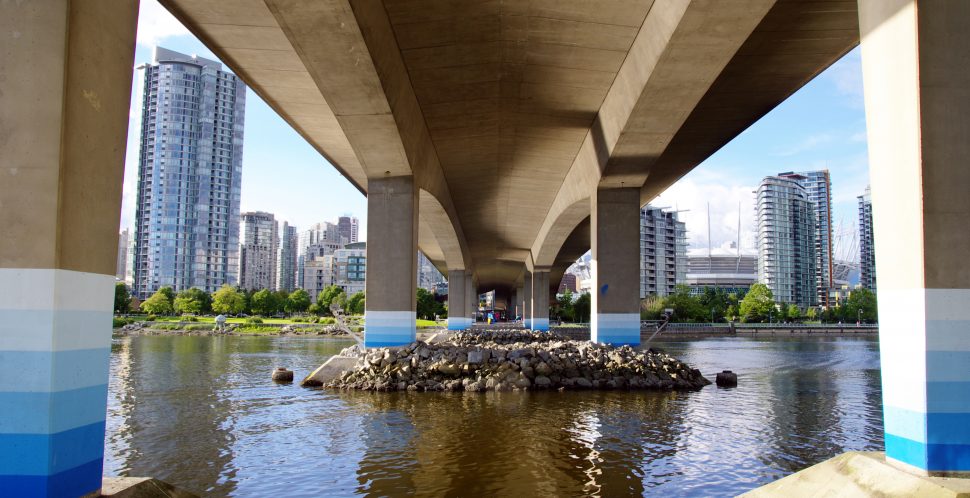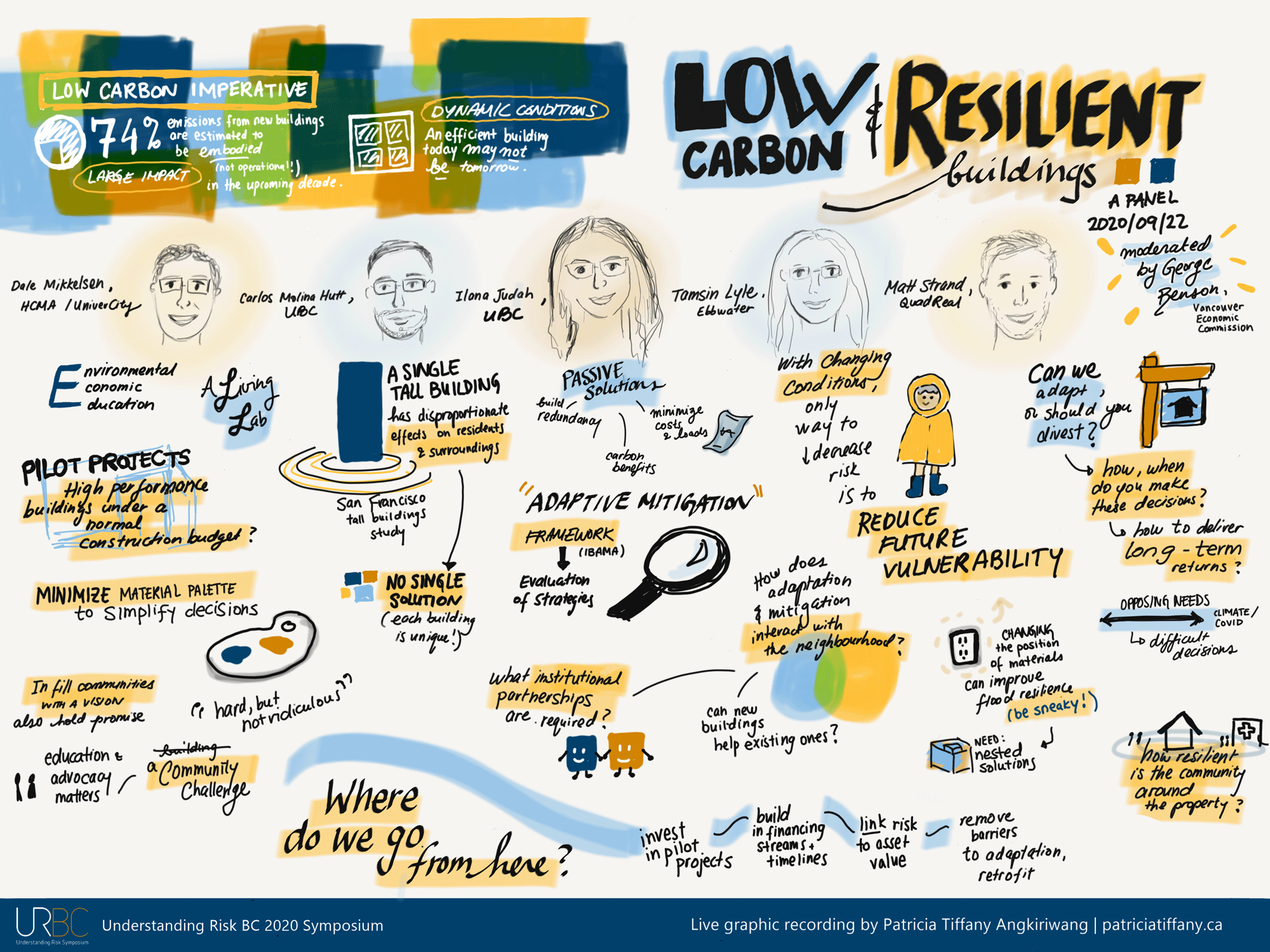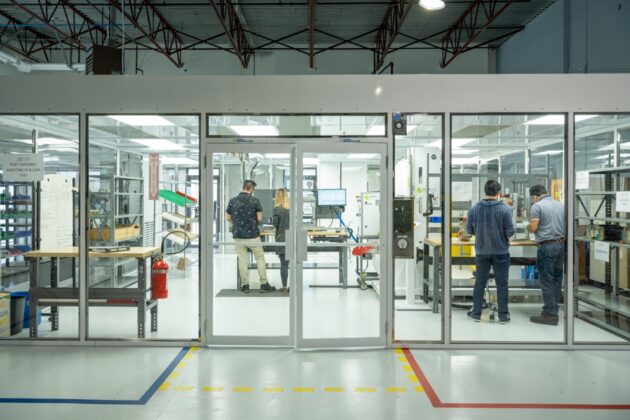Understanding Risk (UR) BC 2020 is an online, collaborative symposium and event series that fosters place-based risk reduction strategies to proactively enhance resilience and improve disaster recovery pathways in BC. On September 22, leading practitioners and researchers from across the region will gather for a Vancouver Economic Commission-moderated panel on “Low Carbon, Resilient Buildings: Lessons Learned and a Path Forward”, an explorative journey towards enhancing low-carbon resilience in new and existing buildings in BC.
This session invites engineers, architects, planners, developers, builders, code officials and anyone else with an interest in building resilience in Southwest BC to view and participate. After all, building stock (new and existing) represents a cornerstone of our society: it houses people/provides sheltering space; often represents a significant personal financial investment and is a source of financial equity; and provides community gathering spaces such as schools, libraries and hospitals, which are critical to everyday life – and even more so when hazardous events occur.
Enhancing our building stock, from the way we site, design, build and maintain, also represents a huge economic opportunity, as the Vancouver Economic Commission demonstrated in its 2019 Metro Vancouver Green Building Market Forecast. Accordingly, those with an interest in local economic development and building the green/restoration economy will also benefit from attending and contributing to this session.
During the course of the session, speakers will reference numerous initiatives, case studies, and theories from around the world for integrating decarbonization and resilience in the built environment. Key resources are listed below.
Integrating sustainability and resilience approaches in MURBs
Ilana Judah, AIA, OAQ, LEED AP BD+C, CPHC, Senior Architect and Master’s Student at University of British Columbia’s (UBC) Institute for Resources, Environment and Sustainability
- New York City Climate Resiliency Design Guidelines — Guidelines for building industry professionals on how to use regionally-specific climate projections when designing New York City facilities
- LEED Resilient Design Pilot Credits — Developed by the Resilient Design Institute, outlines pilot credits for the LEED rating system focusing on resilient, passive-first design
- Ready to Respond Tools for Resilience — Developed by Enterprise Community Partners, shares multiple tools for affordable housing organizations to make their buildings resilient, prepare staff to handle emergencies, and ensure residents remain safe
Seismic resilience in tall buildings
Carlos Molina Hutt, Assistant Professor of Structural and Earthquake Engineering in the Civil Engineering Department at UBC
- Engineering for Seismic Resilience Lab — UBC lab developing methodological approaches and practitioner tools for seismic risk and resilience in buildings
- San Francisco Tall Buildings Study — study led by the Office of Resilience and Capital Planning in San Francisco to understand seismic risks in tall buildings
- San Francisco Tall Buildings Safety Strategy — City and County-level strategy for addressing seismic risk in tall buildings
Institutional approaches to combining sustainability and resilience
Dale Mikkelsen, VP Development for the UniverCity Project at Simon Fraser University’s (SFU) Burnaby Mountain campus
- UniverCity — SFU’s planned, on-campus community
- UniverCity’s Sustainability Framework — A “four E” framework looking to prioritize environmental, social (equity), economic and educational sustainability
- UniverCity’s Development policy — SFU’s framework of zoned, serviced, subdivided sites works to engage private sector developers on a prepaid, 99-year leasehold basis
- Generation Green: The Making of the UniverCity Childcare Centre — A case study of a UniverCity facility from the Living Futures Institute
- Building Community: Defining, Designing, Developing Univercity — A collection of key insights and takeaways of the SFU development process and their engagement with the Living Building Challenge
Being practical: looking to flood-resilient design and retrofits as a means to reduce risk
Tamsin Lyle, Principal and founding engineer of Ebbwater Consulting Inc
- Retrofitting for Flood Resilience (Edward Barsley 2020) — Inspiration coffee table and practical book for resilient design ideas.
- UK Homeowners Guide to Flood Resilience (Mary Dhonau) — Practical exploration for resilient design for do-it-yourselfers
- Brisbane City Flood Resilient Homes Program — Flood-resilient design concepts along with case study program for implementation at a local government scale
- An international design standard: BS Flood Resilient Design (2020 updated expected soon)
Portfolio-based resilience
Matt Strand, National Health and Safety Manager for QuadReal Property Group
- Future Proofing Real Estate from Climate Risks — Urban Land Institute (ULI) partnered study with Heitman, a global real estate investment management firm, to assess the potential impacts of climate change on the long-term viability of real estate assets
- Canada’s Real Estate Sector Needs to Own Up to Climate Risks (Chris Chopik) — Corporate Knights
- Climate Risk, Real Estate, and the Bottom Line — industry bulletin by Moody’s affiliate, 427 and GeoPhy, detailing core risks to real estate asset owners due to climate change
Insights from the Session
In addition to the resources posted above, the session was graphically facilitated, producing the above overview and visual summary of the presentation and audience Q&A. The graphical facilitator was Patricia Tiffany Angkiriwang, a local interdisciplinary researcher and designer who works with data and visual communication.
For more information about green building design and construction, click here.




